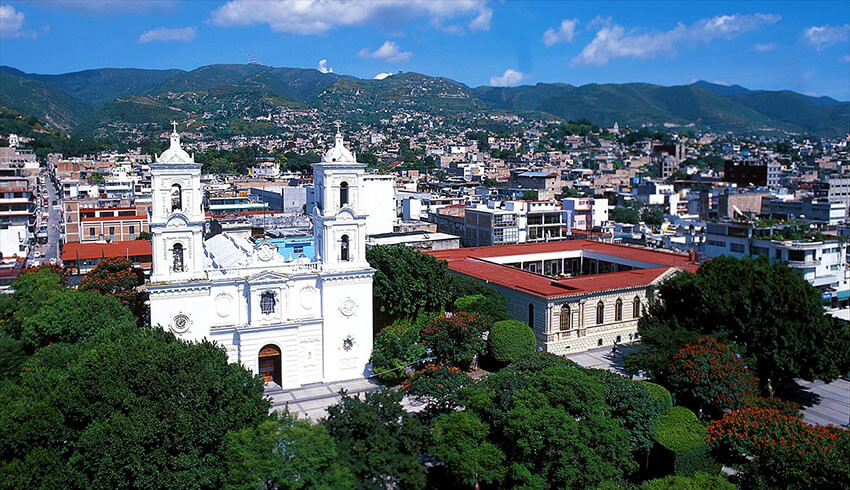Criminal groups in Guerrero have diversified their activities well beyond the trafficking of narcotics, according to a bishop with an intimate understanding of the southern state.
Mining, logging and even the distribution of beer and soft drinks are now among the interests of such groups, Salvador Rangel Mendoza, bishop of the Chilapa-Chilpancingo diocese, told the newspaper Milenio in an interview.
He also warned that many politicians and other public officials are controlled by organized crime.
Rangel, well known for his willingness to engage with criminal organizations, said there has been a political and criminal reorganization in Guerrero since elections were held in June.
“There are criminal groups behind a lot of politicians and behind a lot of leaders,” he said. “In this last vote on June 6, organized crime installed a lot of mayors and some deputies.”
Rangel, who warned in July that Guerrero was at risk of being governed by criminal interests, also said that criminals are now calling local leaders with whom they don’t have ties and instructing them to follow their orders.
Criminals are also extorting mine owners and workers, said the bishop, who frequently travels to communities in his diocese and beyond to listen to the concerns of residents.
“ … Guerrero is rich in … gold and silver [and] these men have already taken control of the mines [and are extorting] both the owners and workers,” Rangel said.
“… It’s the same with logging, [organized] crime is now diversified,” he said. “[Criminals] control pork and beef, they control bread and beer, they control soft drinks in certain areas,” he said.
“… [Only] the soft drink that they want to be sold is sold; meat, chicken and eggs are distributed at the price they want. … That’s why I’ve appealed to federal, state and municipal authorities … to do something for the good of the people.”
In Chilpancingo, the state capital, crime has increased in the past eight months, the bishop said.

“We managed to pacify [the city] about three and a half years ago,” Rangel said, explaining that the dominant criminal group in the capital had not been a frequent perpetrator of violence.
However, that group was ousted by another gang whose modus operandi includes carrying out kidnappings and homicides, he said without naming either.
Guerrero recorded 1,130 homicides in the first 10 months of the year, making it the country’s ninth most violent state. Acapulco and Iguala – where 43 students were abducted in 2014 – are among Mexico’s 50 most violent municipalities, but violence is also a significant problem in poverty-stricken mountainous areas of Guerrero where opium poppies and marijuana are grown as well as the state’s Tierra Caliente region.
Rangel said the federal government’s new support and security plan for Guerrero is a positive, but indicated that more needs to be done, especially in the areas of education and job creation.
Just last week indigenous women from the state’s Montaña region accused authorities at all three levels of government of abandoning them.
With regard to violence against women – another major issue in the state – Rangel said that it occurs due to the sexist attitudes of many men in Guerrero and Mexico more broadly. As for the sale of young girls for marriage, that occurs due to poverty, the bishop said.
“For me the exit [from this problem] is to provide economic opportunities … and education. … There’s a need to sell children in order [for families to have enough money] to eat,” he said.
With reports from Milenio
